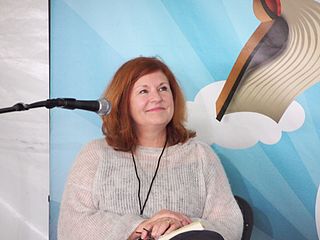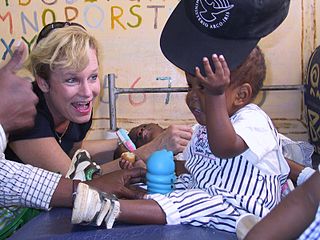A Quote by Kimberly Willis Holt
Even though writing articles relies completely on truth, you still must tell an interesting story. You can't worry about people knowing who you are and whether or not they want to read your stories.
Related Quotes
God wants your ministry to flow from the realization that you are a beloved child of God. In that place you don’t worry too much about how people see you. You don’t worry too much about whether they’re nice or mean. You don’t even worry about whether they love you or hate you. You don’t worry because you’re simply going to love them and love Him. This comes from knowing who He is and what He thinks of you. This is what it means to grasp you are a child of God.
All stories have a curious and even dangerous power. They are manifestations of truth -- yours and mine. And truth is all at once the most wonderful yet terrifying thing in the world, which makes it nearly impossible to handle. It is such a great responsibility that it's best not to tell a story at all unless you know you can do it right. You must be very careful, or without knowing it you can change the world.
I hate the new word processors that want to tell you, as you're typing, that you made a mistake. I have to turn off all that crap. It's like, shut up - I'm thinking now. I will worry about that sort of error later. I'm a human being. I can still read this, even though it's wrong. You stupid machine, the fact that you can't is irrelevant to me.
When I'm writing a script, I don't worry about plot as much as I do about people. I get to know the main characters - what they need, what they want, what they should do. That's what gets the story going. You can't just have action, you've got to find out what the characters want. And then they must grow, they must go somewhere.
I don't think we need a critic to negotiate with the audience. People say, "Who are you writing for?" I'm writing for myself but my audience is anybody who knows how to read. I think a story should engage anybody who knows how to read. And I hope that my stories do, maybe on a different level for more sophisticated readers than, say, a high school kid, but still a story has got to grab you. That's why we read it.
In the '90s, we are all our own gurus, offering truth to each other. My message is that we all have a truth inside of us that we must tell. The synchronicity of life is all about becoming clear, knowing what that truth is, watching and taking advantage of the opportunity to express that truth, and knowing how to present it.
[Eugene Smith] was always writing these diatribes about truth, and how he wanted to tell the truth, the truth, the truth. It was a real rebel position. It was kind of like a teenager's position: why can't things be like they should be? Why can't I do what I want? I latched on to that philosophy. One day I snapped, hey, you know, I know a story that no one's ever told, never seen, and I've lived it. It's my own story and my friends' story.





































